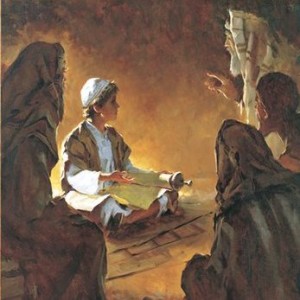Luke 21:5-19
This text is used for the Lectionary Year C on November 13th, 2016.

Not unlike the prophets before him, Jesus sees a problem with the status quo. Two chapters earlier he spoke of the demise of the temple as he drove out merchants who’d set up shop in God’s house. In the first four verses of this chapter, the inequity of the status quo is again on display. A poor widow offers her gifts from the depths of her money purse, while the rich toss in the spare change from their own.
The walls of the building were beautifully decorated—tall steeple, fancy chandeliers, an inviting fellowship hall. Yet as is so often the case, humans have a tendency to revere their accomplishments, be it buildings or reputations. The attention to detail as it pertained to the building while neglecting and exploiting the impoverished, signaled a dramatic disconnect from God’s design.


